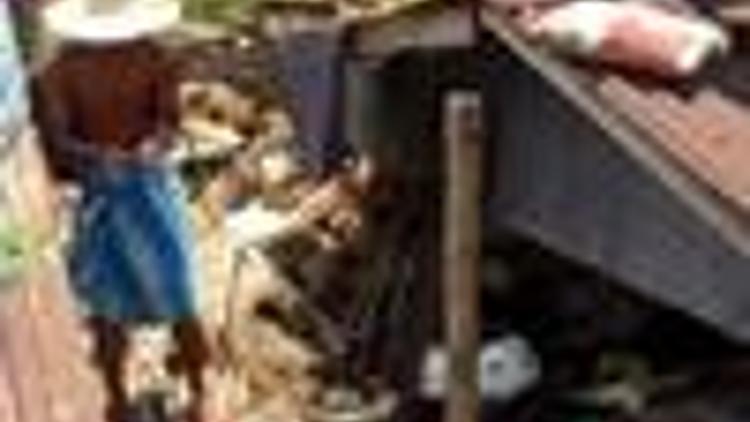Myanmar closed to aid workers as storm approaches
Güncelleme Tarihi:

Myanmar said Friday it was not ready to let in foreign aid workers, rejecting international pressure to allow experts in to help survivors facing the threat of disease and starvation. Reports warn that another storm was headed to the region. (UPDATED)
The United Nations warned Friday that another storm was headed in the direction of
An estimated 1.5 million people have been left homeless by the disaster, which has killed tens of thousands, and the storm could pose serious risks to those battling disease, said Richard Horsey, a UN relief spokesman.
�
"Our meteorological people tell us there’s likely to be fairly strong rainfall in the next seven days," he told AFP in neighboring
"That’s going to be a big issue with unpaved roads. Heavy rainfall could complicate things for all those people going without shelter," Horsey said
One week after the devastating storm that killed tens of thousands,
The foreign ministry announcement came as a top U.N. officials warned time was running out to move in disaster experts and supplies to prevent diseases that could claim even more victims. �
Instead, the ministry said some relief workers who arrived on an aid flight from
"Currently
"As such,
The military regime that rules this impoverished country, once known as
Even with the country battered by tragedy, the generals insist they will hold a constitutional referendum on Saturday, brushing off criticism they are ignoring the plight of the homeless while devoting resources to the vote.
Opposition leader Aung San Suu Kyis National League for Democracy said the junta should delay the vote on a document her party says will merely enshrine military rule.
"With this situation, it is not the appropriate time to hold the referendum," NLD spokesman Nyan Win told AFP.
The extent of the catastrophe unleashed by Cyclone Nargis has also put the regime under intense international pressure to postpone the vote and open up the country, where only a handful of outside aid groups are allowed to operate under strict controls.
"The situation is getting critical and there is only a small window of opportunity if we are to avert the spread of diseases that could multiply the already tragic number of casualties," said Noeleen Heyzer, the top U.N. official for the Asia-Pacific.
Rotting bodies of people and animals are piled up in many places across the remote southern
In many places, the stench of death is overwhelming. Houses have been demolished, roads and bridges are damaged and huge swathes of land are still underwater a week after the disaster hit.
The
Compounding the disaster, the worst-hit area was the major rice-growing region, wiping out the main local food source until the government is able to deliver supplies.
"Now I do not have money to buy essential food items," said 75-year-old Thant Aung, who said his whole village in the Kyaklate delta district was destroyed.
"We have less food to eat. I am borrowing money from my friends to keep my family going."
The World Food Program said another plane laden with energy biscuits, emergency medical tents and other gear landed Friday in Myanmar’s main city Yangon, which is several hours drive from the worst-hit areas.
In its statement, issued before the latest plane, the foreign ministry said 11 aid flights had landed so far and the world could help by sending cash and emergency supplies, rather than aid workers.
"The donors and the international community can be assured that
Other nations are divided on whether they have the right to force Myanmar, whose most powerful ally is China, to open up to humanitarian intervention.

